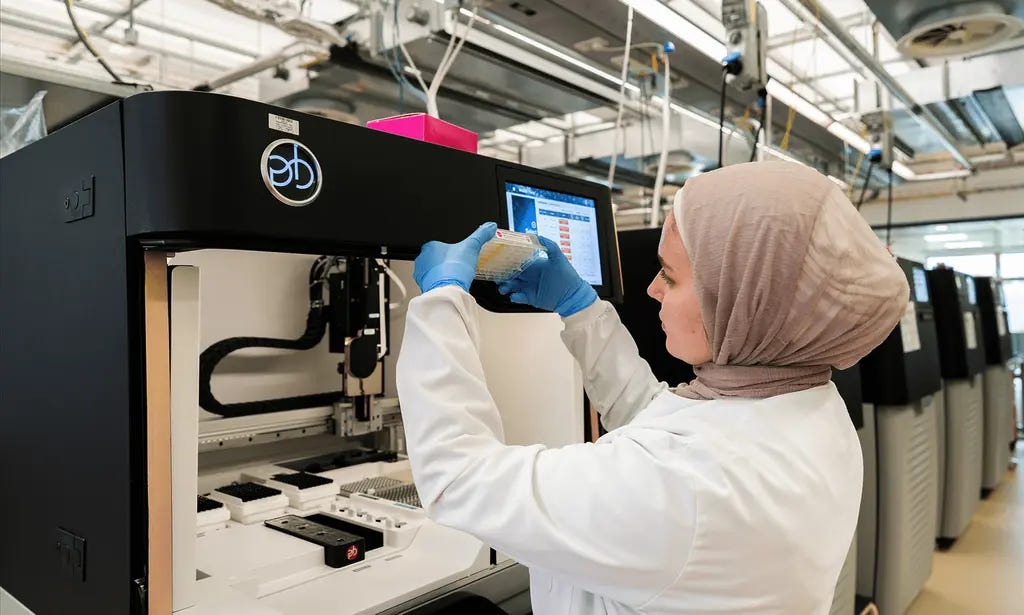The Human Genome Project was one of the most significant scientific endeavours in history, fundamentally transforming our understanding of human biology. Completed in 2003, it accelerated scientific progress and laid the groundwork for future innovations in health and medicine. Welcome contributed £210 million to the effort.
Launched in 1990, the Human Genome Project was an international, collaborative research programme aimed at mapping and sequencing all the genes of the human genome.
It still stands as the world’s largest collaborative biological research project. It involved researchers from 20 separate universities and research centres in:
United States of America
United Kingdom
France
Germany
Japan
China
What was the impact of the Human Genome Project?
The successful completion of the project in 2003 marked the beginning of a new genomic era.
It had profound and wide-ranging impacts on science, medicine and society:
1. Advancements in medicine and healthcare
Precision medicine
The Human Genome Project enabled the development of personalised medicine, where treatments can be tailored to an individual’s genetic makeup. This has increased the effectiveness of therapies and reduced the occurrence of adverse reactions.
Disease identification and treatment
By identifying genes associated with diseases, researchers have been able to create targeted therapies and improve diagnostic tools for conditions such as cancer, cystic fibrosis and Alzheimer's disease.
2. Genetic research and biotechnology
Accelerated research
The completion of the Human Genome Project has accelerated research in genetics, leading to the discovery of new genes and pathways involved in health and disease.
Biotechnological innovations
The understanding of genomes ushered in innovations in biotechnology, including the development of CRISPR-Cas9 gene-editing technology.
3. Economic impact
Economic growth
The investment in genomic research has significantly contributed to economic growth through the creation of new industries in the biotech sector and numerous jobs in research and development.
4. Global scientific collaboration and data sharing
International collaboration
The Human Genome Project set a precedent for international collaboration in scientific research, with participants from various countries working together towards a common goal.
Open access to data
The commitment to freely sharing Human Genome Project data paved the way for open science initiatives, encouraging global research and collective problem-solving.
5. Ethical, legal and societal impacts
Ethical guidelines
The project spurred debates and the development of guidelines regarding the ethical handling of genetic information, privacy and consent.
Public awareness and education
The Human Genome Project increased public awareness and understanding of genetics, prompting discussions on genetic discrimination and the societal impacts of genetic research.
6. Impact on global health
Understanding genetic diversity
Insights from the Human Genome Project have helped researchers understand genetic diversity across populations, which is crucial for addressing health disparities and developing global health strategies.
The future of genomics and the Human Genome Project's legacy
The foundations laid by the Human Genome Project continue to inspire groundbreaking research and innovations. Today, Wellcome supports a broad spectrum of projects that leverage genomic insights to tackle pressing health issues, from infectious diseases to mental health.
One particular area of genomics research which needs expanding is its global representation. The Human Genome Project and the projects which stemmed from it overwhelmingly focussed on the sequencing of the genomes of people of European descent, and there are disparities in genomics capacity globally.
This means there are crucial gaps in our understanding of the human genome which must be bridged so we can all benefit.
Learn more about the genomics diversity gap in our landscaping report.


